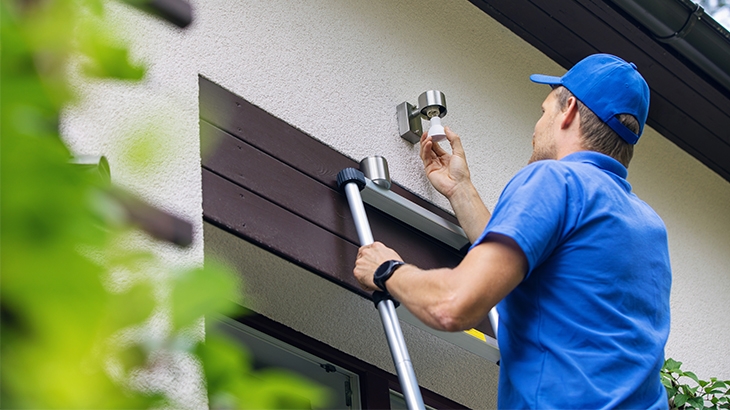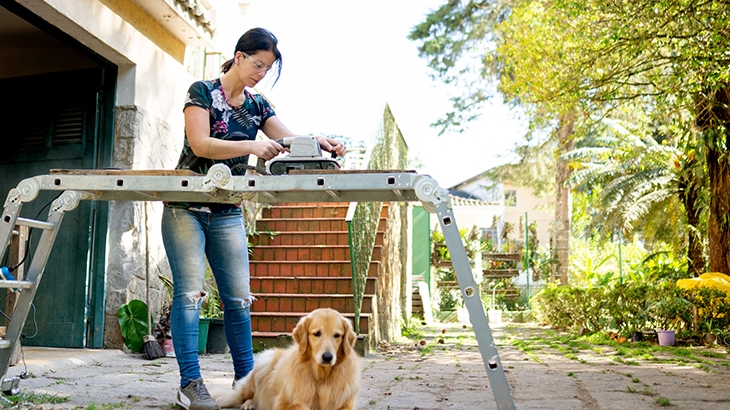Is it Better to Remodel or Move?
Need a change? Maybe you're looking for more space for a growing family, or perhaps the look of your home could just use a refresh. This is where remodeling comes in. But how do you know which projects will actually pay off? While remodeling may look fun on TV, it's not as easy (or cost-effective) as it first appears. You'll need to do some math to find out if your project will pay off or just cost you money, keeping in mind how long you plan to stay in your home since you'll usually be able to sell for more the longer you live there.

Renovate or Sell—Determine Your Main Objectives
Decide whether you're interested in remodeling to make living in the home more enjoyable for you and your family or if your primary concern is increasing the resale value when the time comes to sell.
Think About How Long You Want to Live in Your Home
If you are planning on living in your current home for ten years or more, you may be interested in remodeling simply to increase the enjoyment you get from your home. You can afford to be less interested in the possible resale value of upgrades because you'll have built up equity in the home over the long term. If this is your plan, you will have more flexibility and freedom than someone who is looking to sell in a couple of years. You won't have to worry as much about the value, return on investment, or how potential buyers will react to your improvements.
Resale Value—Renovate or Move
For some, resale value may be the whole point of remodeling! Sometimes, updates and renovation projects will add significant value to your home and make it easier to sell. Talk to a local real estate agent to get an up-to-date community perspective as to which features add the most value to homes in your neighborhood. Keep your neighbors in mind as well, not just future buyers. Post-remodel, your home should still be in an appropriate price range in comparison to the rest of the neighborhood. Otherwise, you may have difficulty attracting the buyers you want and recouping your remodel costs. If you want a swankier home than your current neighbors, it might be worth it to sell and move to a different neighborhood.
Hiring a Contractor or DIY
Sometimes, it's just worth it to pay more for a professional. If you know what you're doing, by all means, pick up that hammer. If you're less experienced, think about the final look that your project will have. Potential buyers that tour your home might see these details and move on. For other projects, a contractor is best for safety and maintenance reasons. Think electrical or plumbing—these can cause big issues if not done correctly.
As you might expect, most contractors will ask for a down payment upfront to secure your spot on their schedule or purchase materials for your job in advance. Depending on the job, subsequent payments are generally tied to job progress. However, asking for a large down payment is a big red flag. Down payment amounts and percentages will vary by contractor and job, but in general, look closely at down payments over 20-25% of the contract price.
To help protect consumers, many states have issued guidance or enacted laws about this matter. For example, Maryland's Home Improvement Commission states that homebuilders should “pay no more than one-third of the contract price as a down payment.” California law states that home improvement down payments cannot exceed $1,000 or 10% of the contract price. Your local consumer agency or the agency that issues contractors' licenses can provide applicable limits in your state.
Down payment percentages are often negotiable. If you're feeling unsure, ask your contractor for more details and see if they'd be willing to establish payment schedules at certain milestones. Most importantly, before you hire a contractor, do your research. Read Forbes' How To Hire A General Contractor: Checklist And Tips for more insight.
Which Projects Add the Most Value
Glad you asked. Keeping it simple and starting slow is the way to go, especially if you're thinking about selling in a few years. You don't want to end up with more than you can financially handle or physically complete. Replacing old windows and doors is usually a good idea as they increase energy efficiency. Adding a deck or remodeling the kitchen are both highly visible improvements that many buyers appreciate, making your home more appealing when the time comes to sell.
WaFd Bank is Here to Help
When it comes to getting your finances in order for the ups and downs of life, a little planning goes a long way. Whether you're a seasoned budgeting pro or new to saving (check out WaFd Bank's account options while you're here), your local WaFd Bank branch is available to help you reach your financial goals. Open an account online, visit your local branch, or give us a call at 800-324-9375 to learn more and open an account today.
Did you find this article helpful? Share it!


